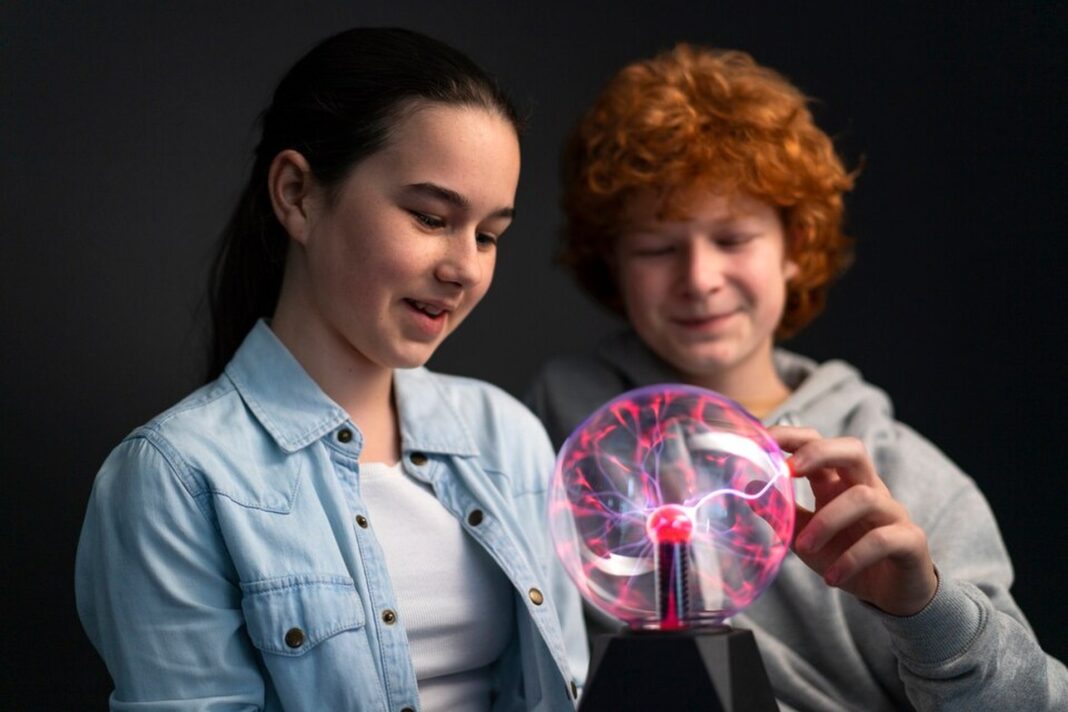The Role Of Neurotransmitters In Love
Love is complicated, incorporating chemistry, biology, and psychology. Our love experience depends on neurotransmitters, which communicate chemically in the brain and affect mood, emotions, and behavior.
Dopamine matters. She was also known as the „feel-good“ neurotransmitter. Loving raises dopamine levels. This induces bliss. I am feeling lively and energetic. The excitement may make love intoxicating.
Also involved: serotonin. It controls emotional balance. Love may lower serotonin. Obsessions about a spouse might result from this decline. Romance shifts our concentration. It obsesses us about our passion.
Oxytocin is a „bonding hormone “ that works differently from serotonin and dopamine. It builds bonds and enhances connection. Hugging and intimacy release oxytocin, which strengthens connections. Partners feel closer. Norepinephrine thrills. It raises heart rate and focus. New love is exciting because of this vitality. Romance inspires passion and curiosity.
Neuroscience illustrates love’s complexity. It goes beyond feelings. Brain chemistry affects how we think and feel. Understanding neurotransmitters illuminates love’s intricacy. Biological factors impact our emotional dance. Recognizing these factors helps improve relationships.
The Brain’s Response To Physical Beauty
Physical attractiveness draws attention, triggering a strong cerebral reaction. Our minds are built to detect beauty, and cultural and biological factors affect this response. Various communities promote different beauty standards, and universally attractive features allure us.
According to research, beautiful looks increase brain activity. The fusiform face is active. This region processes face characteristics and shapes beauty perception. Desire and thrill result from the exercise. Our brains react equally to loved ones and strangers.
Beauty may also affect our choices. Attractive individuals are trusted more. This view may skew social relationships. We quickly feel differently about someone with beautiful looks. It may draw instantly and be hard to ignore. Beauty triggers the reward centre. This region releases dopamine. It boosts happiness and pleasure. A burst of energy or exhilaration may occur. This fuels our beauty obsession.
Physical attractiveness greatly affects emotions and relationships. Attractive ties are just half of love; sustainable partnerships need emotional connection. Comprehending the brain’s reaction to beauty is critical to understanding love. Deeper emotional ties maintain love, not attraction. How we see beauty affects our romantic decisions.
Romantic Love vs Platonic Love: A Scientific Perspective
Love has many forms. Romantic and platonic love differ. Each has various emotions and relationships. Science shows how these loves vary. Romantic love is physical. Desire and attraction are involved. This enthusiasm is fueled by dopamine and norepinephrine. These hormones evoke great thrill and yearning. Touch and closeness are crucial to romantic love.
Spiritual love which prioritizes deep friendship and emotional support is absent in physical attraction. Platonic relationships are passionate too. They provide understanding and friendship. The love is deep but not sexual. Research shows that romantic love activates different brain regions including the reward system. Platonic love activates empathy and social connection. Hormonal reactions vary greatly.
Romantic love typically inspires dedication. Respect and the same interests fuel platonic love. Each sort of love benefits us differently. Knowing the differences helps us appreciate relationships. Both types of love affect our emotions. Knowing how they materialize improves relationships. Each provides comfort and fulfilment for a balanced emotional existence.
The Impact Of Oxytocin On Bonding
Oxytocin is potent and vital to connection and bonding. Known as the love hormone it is released during intimacy which involves snuggling embracing and sex. Its effects reach beyond touch. Partner bonds are strengthened by oxytocin. It builds trust and security. That chemical response builds bonds. Partners feel closer and lovelier. Healthy oxytocin levels foster nurturing.
Research reveals that oxytocin reduces stress and anxiety. When released it calms and relaxes making emotional expression safe. Both couples feel more comfortable discussing sensitive ideas. Oxytocin is also vital in parent child connections. It helps mothers connect. The hormone affects caregiving and emotional connection. Oxytocin bonds parents and children.
Understand oxytocin function to better relationships. Physical affection strengthens relationships. Sharing intimate encounters boosts oxytocin. This may boost love. Oxytocin emphasizes biological and emotional attachment. We learn how love changes our brains. This hormone enhances relationships. It stresses loving and trusting relationships.
The Influence Of Childhood Experiences On Love
Childhood influences our love. Early interactions shape subsequent emotions. Parents caregivers and settings influence development. These early years provide the groundwork for romance. Attachment theory helps explain this impact. Caregivers‘ responses to children needs affect attachment styles.
Secure connections improve adult relationships. Later insecure attachment might cause problems. Love compassion and support help kids form good connections. Trust communication and emotion are also learned. Successful adult relationships need these qualities.
Conversely unpleasant events might hamper relationship growth. Children who are neglected or abused may struggle with intimacy. They may shut off or dread vulnerability. This may prolong toxic partnerships. Recognizing early influences is crucial.
Self-awareness and therapy may assist with these challenges. Understanding previous effects may heal and develop. Introspection may also help make healthy relationship decisions, boosting emotional intelligence.
Understanding attachment types helps people connect. Love is profoundly shaped by childhood. They shape our relationships throughout life. Awareness of these impacts helps personal progress. This journey fosters empathy and understanding in relationships.































